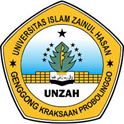The Evolution of Islamic Civil Law in Indonesia: Developments, Contemporary Challenges, and Future Directions
DOI:
https://doi.org/10.5281/zenodo.17385985Keywords:
Islamic Civil Law; Marriage; Inheritance; Legal Reform; Legal Pluralism.Abstract
This article explores the development of Islamic civil law in Indonesia, focusing on the areas of marriage and inheritance. It traces how Islamic legal norms have evolved during the reform era, examining both their practical implementation and the intellectual discussions that accompany them. The development of Islamic civil law reflects Indonesia’s ongoing efforts to harmonize Islamic legal values with the country’s plural legal system, which accommodates religious, customary, and state laws. The study uses a normative juridical method with a historical and conceptual approach. It analyzes primary and secondary legal materials, including statutory regulations, judicial decisions, and academic literature, to understand how Islamic civil law has been interpreted and adapted in the Indonesian context. Key issues discussed include the legal status of children born out of wedlock, marriage registration, polygamy, mandatory wills (wasiat wajibah), substitute heirs (ahli waris pengganti), and other aspects related to marriage and inheritance. The findings show that the development of Islamic civil law in Indonesia represents both continuity and change. While it maintains the essence of Islamic legal principles, it also responds to contemporary social realities, gender equality concerns, and the need for legal certainty. This adaptation demonstrates the dynamic nature of Islamic law and its capacity to evolve in line with societal transformation. Academically, this research contributes to the discourse on Islamic legal reform and legal pluralism by providing a comprehensive understanding of how Islamic civil law functions within Indonesia’s modern legal framework.
Downloads
References
Ali, Muhammad Daud. Hukum Islam Dan Peradilan Agama. PT Raja Grafindo Persada, 1997.
Ali, Nur. ‘Transformasi Hukum Keluarga Islam Sebagai Sumber Hukum di Indonesia’. Khuluqiyya: Jurnal Kajian Hukum dan Studi Islam, ahead of print, 25 July 2021. https://doi.org/10.56593/khuluqiyya.v3i1.67.
Gugule, Hamdi, and Romi Mesra. ‘Analisis Sosiologis Terhadap Video Viral Tiktok Tentang Penegakan Hukum Di Indonesia’. Ideas: Jurnal Pendidikan, Sosial, Dan Budaya 8, no. 3 (August 2022): 3. https://doi.org/10.32884/ideas.v8i3.956.
Gunawan, Edi. ‘Eksistensi Kompilasi Hukum Islam Di Indonesia’. Jurnal Ilmiah Al-Syir’ah 8, no. 1 (June 2016): 1. https://doi.org/10.30984/as.v8i1.39.
Hadi, Syamsul, Nur Rokhman, Kusuma Chandra Kirana, Naima Andleeb, and Eni Purnasari. ‘The Impact of Islamic Work Ethics and Organizational Justice on Organizational Citizenship Behavior: The Mediating Role of Organizational Commitment’. Al-Iqtishad: Jurnal Ilmu Ekonomi Syariah 15, no. 2 (December 2023): 2. https://journal.uinjkt.ac.id/index.php/iqtishad/article/view/33375.
Harahap, Yulkarnain, and Andy Omara. ‘Kompilasi Hukum Islam Dalam Perspektif Hukum Perundang-Undangan’. Old Website of Jurnal Mimbar Hukum 22, no. 3 (2010): 3. https://doi.org/10.22146/jmh.16245.
Idris, Ahmad Rusyaid, Muhammad Khusaini, and Syaiful Anwar Al-Mansyuri. ‘Contemporary Islamic Law in Indonesia: The Fulfillment of Child Custody Rights in Divorce Cases Caused by Early Marriage’. MILRev : Metro Islamic Law Review 3, no. 1 (April 2024): 1. https://doi.org/10.32332/milrev.v3i1.8907.
Kania, Dede. ‘Hak Asasi Perempuan Dalam Peraturan Perundang-Undangan Di Indonesia’. Jurnal Konstitusi 12, no. 4 (2015): 4. https://doi.org/10.31078/jk1243.
Khilmi, Dewi Anandita Khifadlul, Rosa Agustina Findy, Putri Salsabila Isviana, and Denny Oktavina Radianto. ‘MULTIKULTURALISME DALAM KEHIDUPAN SOSIAL MASYARAKAT INDONESIA’. JOURNAL SAINS STUDENT RESEARCH 2, no. 2 (April 2024): 2. https://doi.org/10.61722/jssr.v2i2.1193.
Mulia, Muji. ‘PEMBAHARUAN HUKUM ISLAM DI INDONESIA (Analisis Historis Tentang Kompilasi Hukum Islam)’. Jurnal Ilmiah Islam Futura 7, no. 1 (April 2018): 1. https://doi.org/10.22373/jiif.v7i1.3056.
Pradanna, Satrio Alpen, Muhammad Mona Adha, and Edi Siswanto. ‘Kearifan Lokal dalam Tradisi Manjau Maju Masyarakat Lampung Saibatin Pekon Kedaloman Kabupaten Tanggamus’. Journal of Social Science Education 2, no. 2 (November 2021): 2.
Qomari, Nur, and Roihanah Roihanah. ‘Sketsa Historis Posisi Kitab Kuning Dalam Legislasi Hukum Islam di Indonesia’. Jurnal Pusaka 4, no. 1 (2016): 54–68. https://doi.org/10.35897/ps.v4i1.50.
Robita, Achmad, Fauzi Fauzi, and Dakir Dakir. ‘Transformation of Quality Culture in Improving the Quality of Islamic Education Institutions’. International Journal of Education, Culture, and Society 3, no. 2 (April 2025): 2. https://doi.org/10.58578/ijecs.v3i2.5397.
Shiddieqy, Ahmad Ash, Padlan Padil Simamora, and Dinda Difia Madina. ‘Contemporary Islamic Politics in Tunisia: The Journey of Islamic Democracy Post-Arab Spring’. MILRev: Metro Islamic Law Review 3, no. 1 (April 2024): 1. https://doi.org/10.32332/milrev.v3i1.8976.
Sukmawati, Ellies. ‘FILOSOFI SISTEM KEKERABATAN MATRILINEAL SEBAGAI PERLINDUNGAN SOSIAL KELUARGA PADA MASYARAKAT MINANGKABAU’. EMPATI: Jurnal Ilmu Kesejahteraan Sosial 8, no. 1 (June 2019): 12–26. https://doi.org/10.15408/empati.v8i1.16403.
Sulfanwandi, Sulfanwandi. ‘The Kompilasi Hukum Islam in Indonesia: Compilation and Its Relation to Islamic Jurispridence [Kompilasi Hukum Islam di Indonesia: Penyusunan dan Kaitannya dengan Ushul Fikih]’. Legitimasi: Jurnal Hukum Pidana dan Politik Hukum 9, no. 2 (December 2020): 2. https://doi.org/10.22373/legitimasi.v9i2.8513.
Suwarjin. ‘Contextualization of Employment of Zakat Form The Perspective of Mafhum Muwafaqah’. NUSANTARA: Journal Of Law Studies 2, no. 1 (March 2023): 1.
Taufiqurrahman, Taufiqurrahman. ‘Kompilasi Hukum Islam: Suatu Formalisasi Syariat Islam Di Indonesia’. AL-IHKAM: Jurnal Hukum & Pranata Sosial 1, no. 2 (2006): 2. https://doi.org/10.19105/al-lhkam.v1i2.2559.
Tinambunan, Wahyu Donri, and Galih Raka Siwi. ‘Dinamika Kedudukan Hukum Jaksa Sebagai Pengacara Negara Pasca Undang-Undang Kejaksaan’. Ajudikasi : Jurnal Ilmu Hukum 6, no. 2 (December 2022): 2. https://doi.org/10.30656/ajudikasi.v6i2.4586.
Umam, Khairul. ‘Penyerapan Fiqh Madzhab Syafi’i Dalam Penyusunan Kompilasi Hukum Islam’. De Jure: Jurnal Hukum Dan Syar’iah 9, no. 2 (December 2017): 2. https://doi.org/10.18860/j-fsh.v9i2.6991.
Warman, Arifki Budia. ‘Dinamika Perkembangan Hukum Keluarga Islam di Indonesia’. IJTIHAD 35, no. 2 (2019): 2. https://journals.fasya.uinib.org/index.php/ijtihad/article/view/14.
Downloads
Published
How to Cite
Issue
Section
License
Copyright (c) 2024 Dewi Fransiska Mamonto et al

This work is licensed under a Creative Commons Attribution-ShareAlike 4.0 International License.















